Behind the Groove: Robin Bell-Stevens on the Magic of Jazzmobile’s Free, Mobile Music Festival, Summerfest
Summerfest – a free, mobile concert series – is an electrifying, summer-long celebration of the jazz genre.
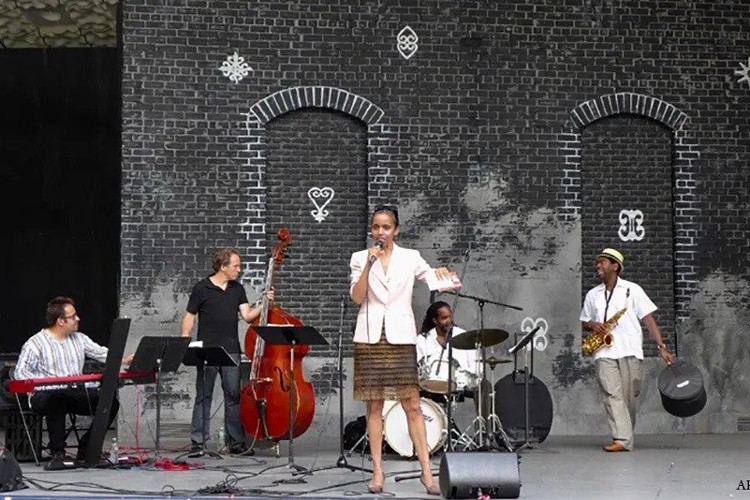
Every summer since 1964, a jazz festival has lit up the streets, parks, and public spaces of New York. Summerfest – a free, mobile concert series – is an electrifying, summer-long celebration of the jazz genre put on by Jazzmobile, a Harlem-based organization with a storied past rooted in the Civil Rights movement.
Jazzmobile has played a major role in the renaissance of jazz music through its trademark mobile concert series and educational programming, which includes free workshops, residencies, and symposia.
For National Jazz Appreciation Month, Columbia Neighbors spoke with the Executive Director of Jazzmobile and long-time lover of jazz music, Robin Bell-Stevens. Robin shared Jazzmobile’s history, why she loves jazz, and the best jazz spots Uptown.
Jazzmobile has a remarkable origin story. Tell us how it all began.
In the 1950s, jazz master Dr. Billy Taylor wrote “I Wish I Knew How It Would Feel to Be Free.” It became very popular when it was recorded by Nina Simone, and has even been rerecorded by John Legend and Questlove. Because of that song and Dr. Taylor’s passion for social justice, he worked closely with Dr. Martin Luther King, who declared the song a civil rights anthem. After participating in the March on Washington in 1963, Dr. Taylor came back to New York and, together with arts administrator Daphne Arnstein, co-founded Jazzmobile in 1964.
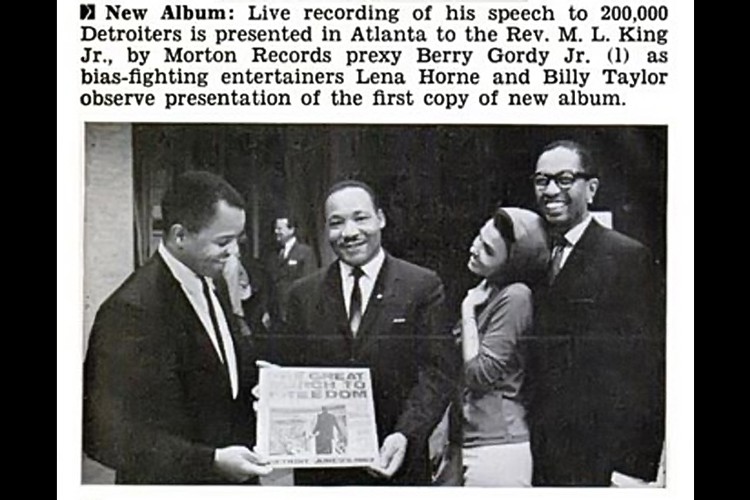
The Harlem Riots also happened the same year we were founded, which was a huge uprising that happened when 15-year-old James Powell from Harlem was murdered by a white police officer. This struggle really urged Dr. Taylor to want to do something for his community. Dr. Taylor also used to play these concerts downtown to primarily white audiences and it bothered him that the people from his own community – who gave birth to and nurtured the genre – weren’t able to afford tickets. This sparked the idea for Dr. Taylor to create Summerfest, which is now our wildly popular concert series.
Jazzmobile’s Summerfest is about to reach its 60th anniversary! How has the music festival evolved over the years?
It began as this parade float on a flatbed truck that would drive around town with a jazz band up top. The float was this black and white, wrought iron stage – much like the floats you’d expect to see in New Orleans. It would travel block by block, neighborhood by neighborhood, originally just in Harlem, but eventually throughout the five boroughs.
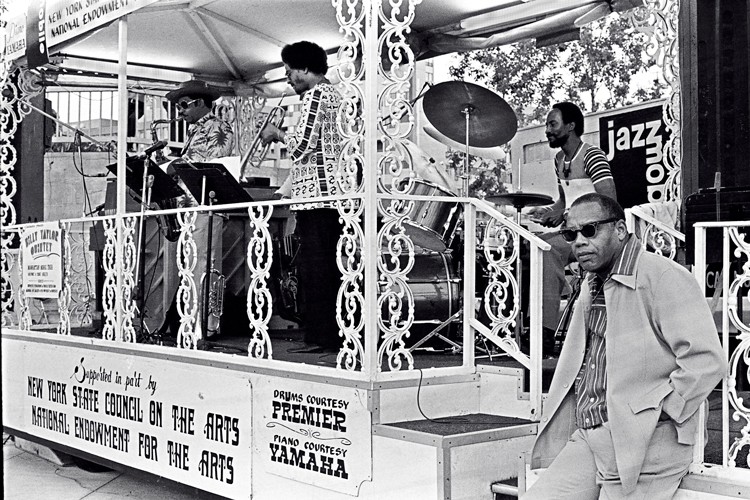
In the early days, it was very local, and those that were within a 10-block radius would hear the music and just come running over. Now, we perform at venues everywhere in the city and people travel from all over to attend, but we still target our underserved communities and perform regularly Uptown. We do say Summerfest is accessible with a capital “A” because we make sure it's accessible to people of all abilities and that attendance is completely free.
Tell us about the kinds of artists that perform at Jazzmobile.
The artists that we are presenting are just phenomenal, not only in terms of their stature, but also in their pure skill and ability. We present the legends and the greats, but also we give opportunities to emerging artists who are world-class musicians in their own right.
One incredible, young guitar player, King Solomon Hicks, studied in our Saturday Jazz Workshop when he was young. He went on to study at the Harlem School of the Arts, and by his teens, he was playing guitar every Monday night as the star performer at The Cotton Club. He’s performed at Jazzmobile many times.
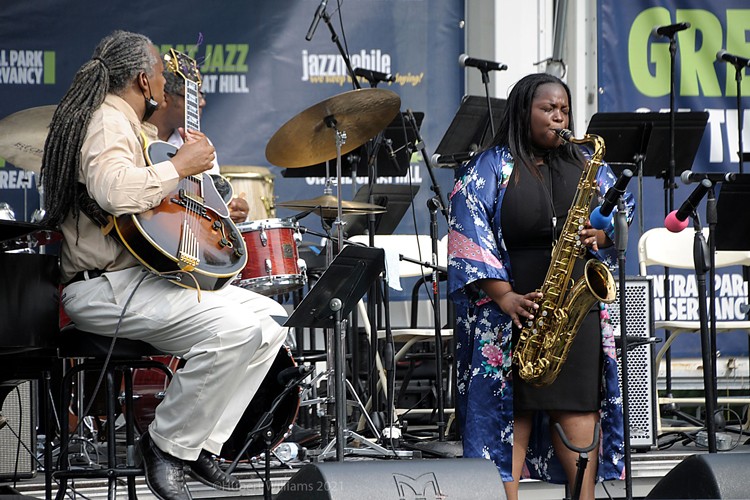
In 2020, someone else I know who organizes concerts in Riverside Park called to ask if Jazzmobile could help promote a new talent. I said, “Of course, whatever you need us to do.” She turned out to be this amazing, emerging jazz vocalist named Samara Joy, who has now won two Grammys for Best New Artist and Best Jazz Album. So, the presence of jazz music – and Jazzmobile – is very bright.
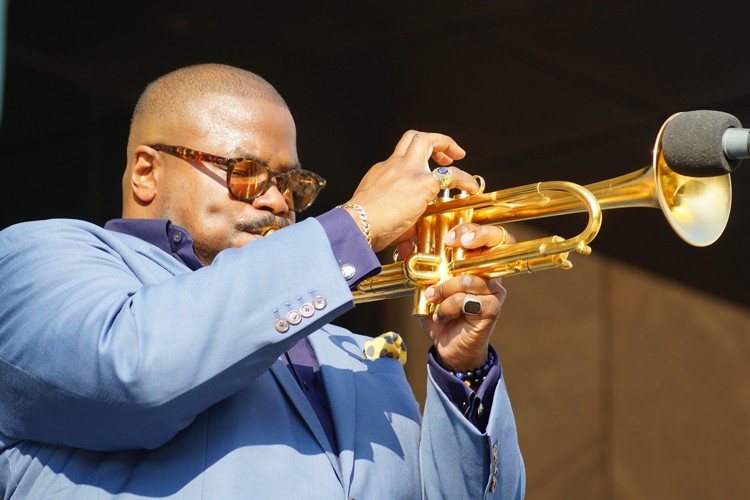
Jazzmobile has also been an essential propagator of new talent through workshops and training programs. How did education become an important part of Jazzmobile’s work?
We have a free music training program, Saturday Jazz Workshops, that started back in the 1960s and still continues to this day. By the 60s, jazz was no longer the pop music of its time and there was nowhere for people to learn the music, so Jazzmobile began bringing training and performance programs to public schools in underserved New York City communities.
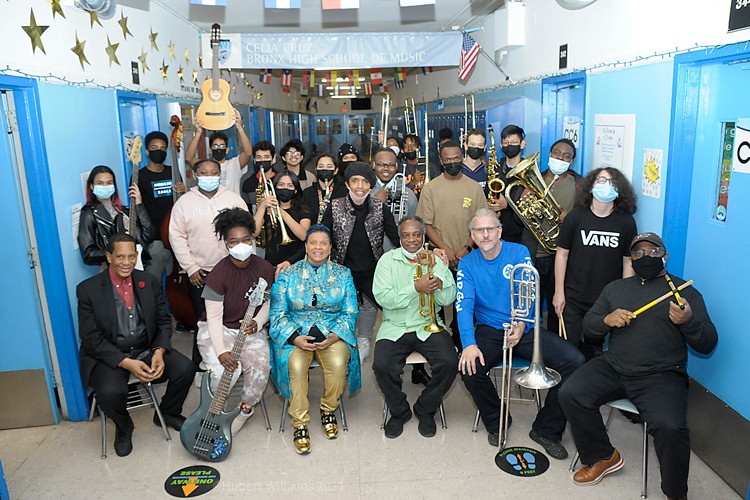
You have been working with jazz music professionally for decades. As a music lover myself, I would love to know how you made a career out of your love for jazz.
It became clear early on that I couldn’t sing well [laughs]. I picked up the cello in high school, but I couldn’t play that well either. Then, as an independent project during my senior year, I did this presentation on blues and jazz that helped me realized there was another way that I could be involved in this music – producing and presenting. So, I would start producing jazz concerts, the first being a fundraiser for a small nursery school at the Public Theater. I actually presented my own father, who did a wonderful tribute to Duke Ellington.
I then started producing jazz festivals for the Jackie Robinson Foundation in Connecticut. I also organized an incredible nine-day jazz festival in Dakar, Senegal with about 20 musicians. Afterward, I joined Jazz at Lincoln Center for about a year before eventually landing at Jazzmobile where I’ve been ever since.
What are some of your favorite Uptown jazz spots?
I may be biased, but the Chapel of the Interchurch Center on every second Wednesday of the month is great. It’s where our popular Jazzmobile Sessions program takes place, though it is moving around to other locations this year. We’re also at Grant’s Tomb, which is an incredible venue.
Jazzmobile has presented nationally and internationally, but Harlem is its home. What makes Harlem special to you?
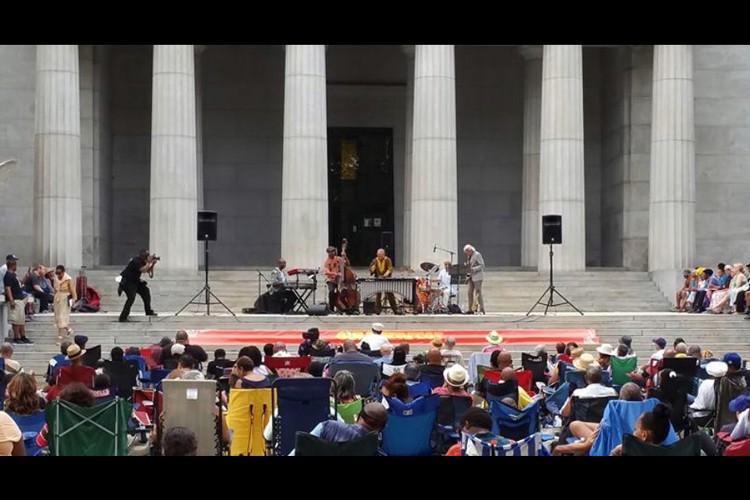
Our biggest presence to this day is the place where we were founded because that’s the community that inspired us to do what we do and who asked us to bring the music. We have toured nationally and internationally over our 50-plus years, but it wouldn’t surprise me if Harlem stays our home forever.